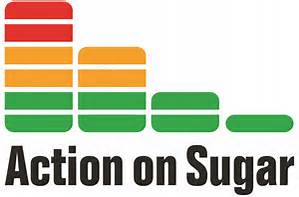One of the main headlines from last week’s budget was an introduction of a sugar tax on soft drinks aimed at saving the children from the toll of obesity. On current trends the next generation will see half of boys and almost three quarters of girls overweight or obese.
Sugar content has been a hot topic in recent years, with campaigners from inside and out of the health industry pushing for this tax, citing that sugar content is a major contributor to childhood obesity.
So, why is sugar bad for us?
The added sugar in food and drink that we consume everyday has a number of health effects and little nutritional value. Researchers have found a link between sugar and unhealthy levels of blood fats. Employees who consume large amounts of added sugar will have higher triglyceride levels and lower HDL cholesterol (good cholesterol) levels. Heavy links have also been made between sugar intake and obesity levels as sugar is very “calorie dense”. This means that just a small portion of sugar can contain a high number of calories, and many people will over eat without realising it. Diabetes cannot directly be associated with sugar intake, but poor insulin sensitivity can be a result and this in turn can lead to symptoms of diabetes.
How much sugar should we consume?
When we talk about added sugars, or “free sugars” we refer to those found in sweets, cakes, biscuits, chocolate, fizzy drinks, and juices. It is recommended that no more than 5% of our calorie intake should come from these sources. For the average adult, this equates to roughly 30g of added sugar a day, or 7 sugar cubes. This may sound like a lot to some people, but when you look at just how much sugar is in the foods we consume every day, it doesn’t take long for those sugar cubes to add up.
So, how much sugar are we consuming in our fizzy drinks?
Most people will not be able to tell you how much sugar they are consuming in a working day. Just by having one 330ml can of cola, an employee is already taking in more than the 30g recommended level sugar intake – the can contains 35g. Cola though is just one of the main offenders. Lucozade energy contains around 21g per 500ml and Ribena has 25g per 500ml. The worst offenders are ginger beers which have the equivalent of 13 teaspoons of sugar per 330ml serving. When you think of how many children and work colleagues are consuming these drinks on a daily basis, it is no wonder that this tax is being pushed through.
How can we reduce sugar intake?
As always, here’s a few Healthy Performance top tips to help you and your colleagues reduce sugar intake:
- Look at drinks first – drinking sugar is often a habit rather than necessity. If going without is particularly tough at first, look to cut down the amount of sugar gradually to allow a natural shift in taste preference for it. For example, put just half the teaspoon of sugar into your tea or use a smaller juice glass in the morning.
- One thing at a time – When you first start looking to cut back on sugar, it can be somewhat depressing. Start by making one change at a time, like having a lower-sugar topping for your porridge. Small changes over time are more sustainable than a drastic all-or-nothing approach.
- Consider your use of sugar – It’s common for people to use sugar as a stress-coping mechanism. After all, it’s accessible, cheap, quick and easy. Take note if you’re consuming sugar in response to emotional hunger. Seek to build in other coping mechanisms that don’t involve sweet food such as yoga or a run, something relaxing like a walk or a simple breathing exercise.
- Avoid hidden sugar – At the risk of stating the bleeding obvious, avoid sugar that you don’t know you’re eating. Double check sauces, dressings, cereals, soups and so on. Look to make your own where you can and cut back on processed foods as much as possible
For further information and help with cutting back on sugar, visit the Government’s rather good Sugar Smart campaign website. The Healthy Performance “Health and Wellbeing Taster Workshop” looks at sugary drinks and their impact on employees; please call one of the HP Team on 01295 230120 for further information on educating your workforce.












